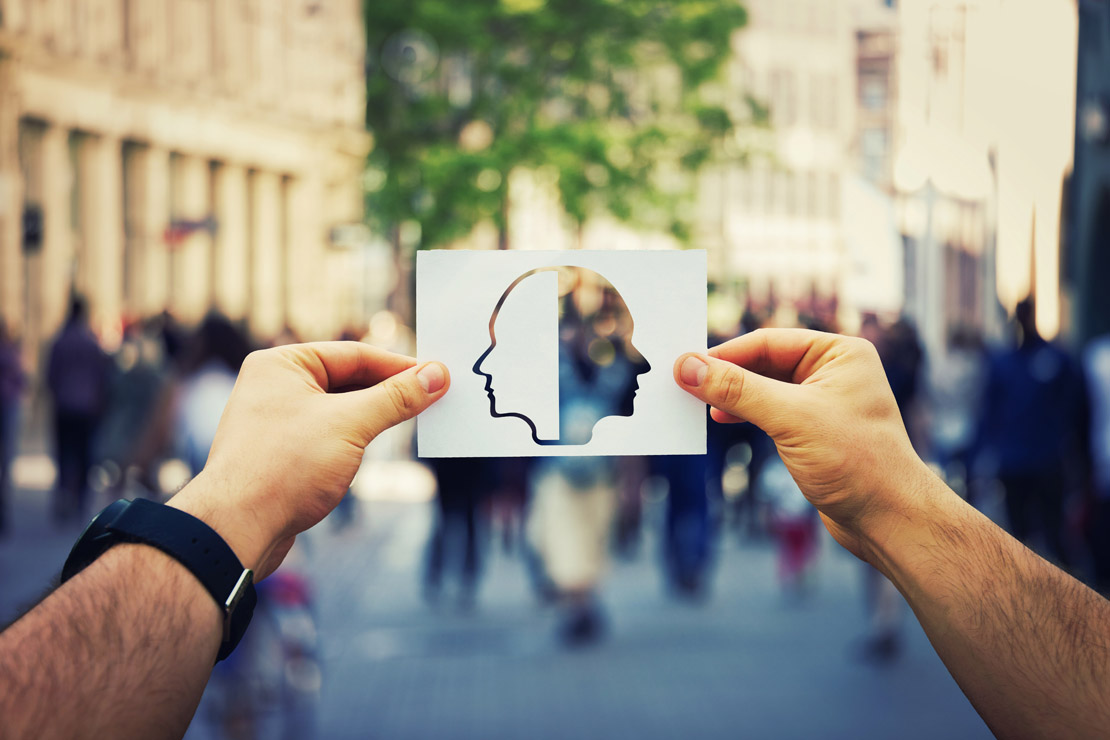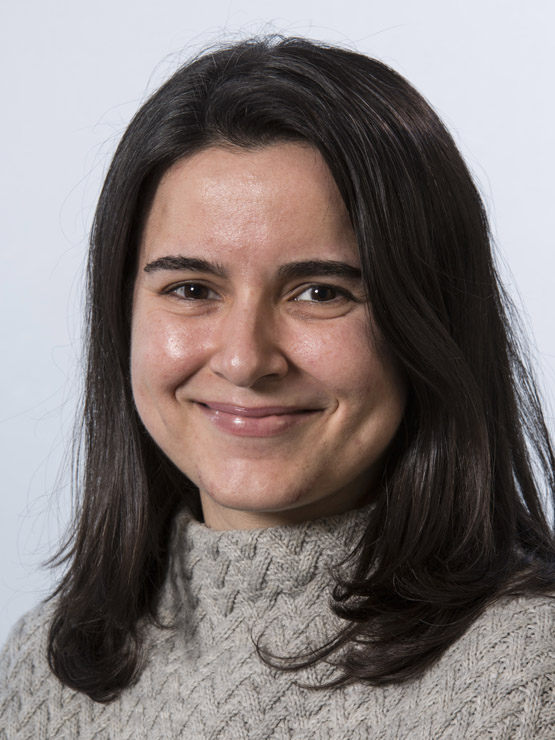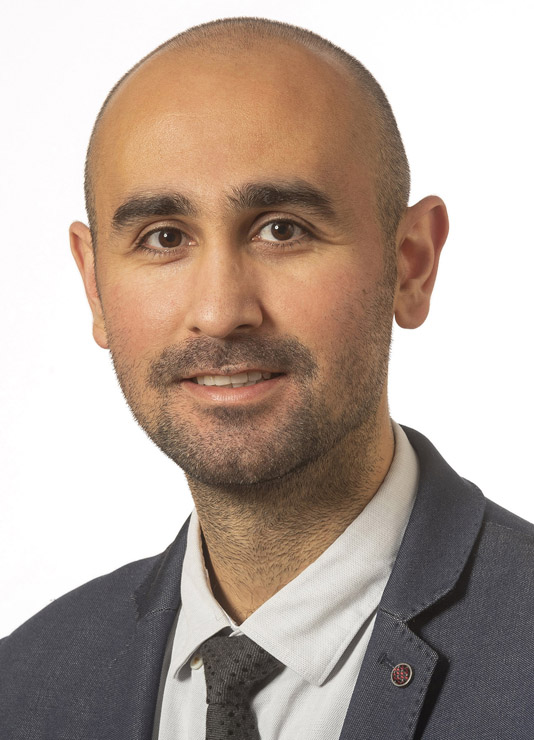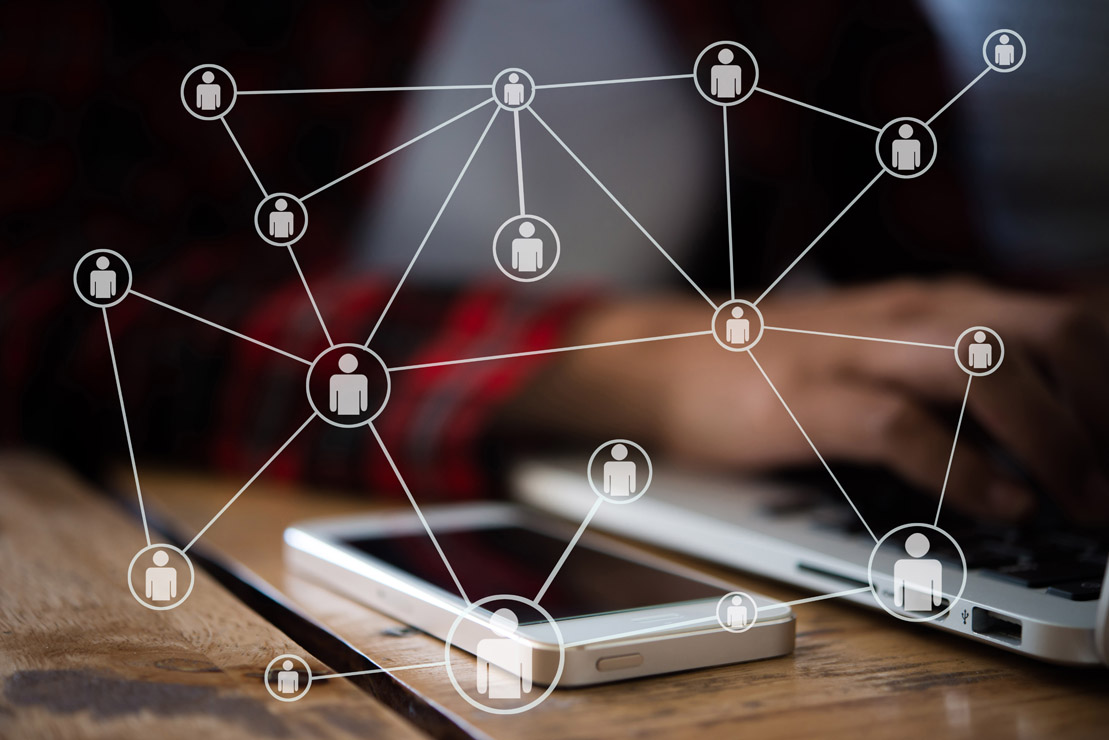Rebuilding bridges- Every experience has multiple sides
Newsletter

In 1974, Nobel laureate Daniel Kahneman and his long-time research associate Amos Tversky published one of the most revolutionary articles in social psychology.
The work of the Nobel laureate Daniel Kahneman and research associate Amos Tversky has changed the way we view human interactions (Tversky & Kahneman, 1974). They clearly illustrated that the way each of us experiences the same situation is very different. It’s subjective, not logical. It depends on our previous experiences, security level (e.g., life or work stability), and the list goes on.
When faced with a stressful and unpredictable situation, our brain sends a very fast signal, instructing us how to escape. And since it knows best how to control our body, it will use the most effective motives to stimulate us, which don't necessarily have a logical connection to the situation we find ourselves When faced with a stressful and unpredictable situation, our brain sends a very fast signal, instructing us how to escape. And since it knows best how to control our body, it will use the most effective motives to stimulate us, which don't necessarily have a logical connection to the situation we find ourselves in. This is one of the main reasons why two people at the same place at the same time will experience the surrounding environment in very different ways.
When COVID-19 hit the world, each of us was placed in an unpredictable situation for an undefined amount of time. As time went on, we adapted and created our workarounds to the situation. We changed. Some of those changes were for the better, some not. As large as the MCAA community is, that’s how many experiences there were. There are Early Stage Researchers working on their dissertation, others are trying to become independent researchers, and others may have already established an independent research line.
There are also many members who have left academia and moved to industry. While it is impossible to fully understand, we wanted to get an idea of how the "COVID experience" varied for people depending on their career stage and professional level of independence.
Therefore, in this interview, we asked the same set of nine questions to three people living in the Netherlands. The questions focus on professional communication and networking during the pandemic. Each of the interviewees has (originally) moved to the lowlands to conduct research or study, yet currently they are each on a very different career path. We hope that their experience and perspective of the past two years will resonate with a wide audience and provide an enlightening look at the individual perspective.
Our interviewees
Ander Zhylka (AZ): I’m from Minsk, Belarus. I am a PhD student in the Medical Image Analysis group at Eindhoven University of Technology, The Netherlands. I work on reconstruction of nerve fibers using Diffusion MRI, which is consequently used for braintumour surgery planning.
Irene Hernandez Giron (IHG): I’m a medical imaging researcher working on objective image quality assessment in radiology. I develop specific image quality metrics tailored to clinical diagnostic tasks, design and manufacture anthropomorphic objects, based on 3D printing as patient surrogates and evaluate the performance of AI-based tools. After two Postdocs, I was awarded a personal Veni grant (NWO Talent Programme) (2020- 2023) to start my own independent research line. I was born in Madrid (Spain) and moved to the Netherlands just before finishing my PhD.

Anil Yalcin (AY): I’m a business professional with more than six years of experience at a Fortune 500 company. Prior to that, I carried out a PhD project at Delft University of Technology. I focussed on materials science and transmission electron microscopy. I’m originally from Turkey but have been living in the Netherlands for 12 years.
What is your typical professional networking strategy and how has it evolved since the start of your career (after university)?
AZ: Before pursuing a PhD I started my career in industry. In this context, networking would primarily be limited to people from the same company or meeting people from similar domains at occasional conferences. In academia, however, I received much more freedom to initiate collaborations. Initially, I met my future collaborators either at conferences or summer/winter schools. However, later I contacted people directly after reading their papers if I thought there could be a potential common interest.
AY: Having a customer-facing role (where my main customers are researchers), I network regularly at conferences and at sales meetings with my customers. Within the company, I have come to the realisation that visibility is of crucial importance. Therefore, I started to use my technical background (i.e., data mining, statistics) regularly to uncover business and/or commercial issues of my company, and this helped me to network with higher management as well as to improve my visibility

IHG: By the end of my PhD I had already established a small network of international collaborators, who were at similar career stages as myself. Then I started cooperating on a small-scale with those groups on specific topics (like writing a common paper) or to exchange scientific information. Conferences were always an opportunity for networking, showcasing my research to gain visibility and impact and getting feedback from peers. Later, I became more involved in national and international societies of experts in medical physics. I also volunteered for working groups and committees to reach a wider expert audience and help in standardising methodologies.
What communication techniques or types of professional events have proven to be the most effective in growing your professional network during your career (prior to 2020)? What about events/network actions that have had the greatest positive impact on your professional output (generated the best results)?
AZ: Without a doubt, in-person interaction at conferences and courses is the best and quickest way to grow the network, especially, as you may be introduced to already formed networks with your direct colleagues. Personally, I have met two of my collaborators at a conference and at a summer school. Interestingly, while visiting one of them I was able to get involved with another project led by a local group.
IHG: Firstly, conferences work best for me, especially face-to-face events. These help me to meet people and find out if they have common interests and similar approaches to science. Secondly, reaching out directly to other researchers who have published relevant papers with a potential overlap or complementary methods. Joining forces with people in working groups has helped me to find compatible collaborators having a real life taste of how we would work together.
AY: I realised that once being asked, most people are very much open to sharing their experience in their career path, including the ups and the downs. I try to be active on LinkedIn, which has evolved from a social networking site to a leading recruiting engine for companies (such as Sales Navigator). Furthermore, I decided to work on a parttime MBA, which has been instrumental in expanding my network (even prior to the COVID-19 lockdowns).
Looking back over the past two years, could you reflect on how the pandemic impacted your job performance (e.g., work output) and changed how you network? For example, did you adopt a more aggressive social media strategy to maintain the same level of professional networking? What about professional output?
AZ: Although after the start of the pandemic I began contacting people directly more often, I would not say it was a result of the absence of offline communication. Rather a natural personal growth. Nevertheless, I have experienced an impact of remote collaboration on the project where close back-and-forth interaction would have been very beneficial. Without an opportunity to drop by the office and exchange ideas, things slowed down at times.

AY: We used to travel to our customers as
much as possible with the notion that faceto-face meetings cannot be replaced. Due to
COVID-19, we started to conduct our customer
engagements online. While it was different
at first, we managed to adapt to the global
restrictions and our customers have been
very understanding throughout this change.
Regarding networking with colleagues, I
was totally home-office based, therefore,
interactions were limited to online meetings.
Throughout the pandemic, there have been
several organisational changes in my company,
and I have still not had the chance to meet
some of new team members
IHG: My output has gained in quality and longterm impact over the past two years, but has suffered in terms of quantity. It takes more time and energy to get things off the ground. I have strengthened my already established collaborations, finding more areas in common where we can learn from each other's expertise. Virtual conferences have not been useful for me to further increase my network mainly due to a lack of proper interaction. This is why I opted to be conservative and use my current reliable contacts to meet new potential collaborators. I have also increased my presence in international committees, starting initiatives to bring together experts on similar topics as mine to standardise methods and bring them to a wider practice, playing the long game and sacrificing a bit of novelty research.
What’s a major positive change in your career that was made possible by the pandemic and that you would like to maintain in the postpandemic times? Would this change have been possible before the pandemic (e.g., hybrid event)? If so, why didn't you start it sooner?
AZ: I would say that in some cases a chance to attend a conference online can be convenient, especially if one is interested in a specific part of the conference or just a couple of talks. Additionally, after the start of the pandemic, the European Society for Magnetic Resonance Anil Yalcin in Medicine and Biology (ESMRMB) Early Career Research Committee came up with an initiative of “speed dating” events that would allow meeting new people. I believe having such meetings over the year in addition to conferences would be great.
IHG: Now I am convinced that it is feasible to collaborate with anyone anywhere, taking the advantage of our communication tools if there is a common commitment. Nearness does not guarantee a successful cooperation. I have more regular and effective contact moments with some of my distant collaborators. I hope hybrid events remain, as it would allow me not to have to select so strictly which to attend for monetary or time constraints. Wider scientific audiences will also be able to attend, which will enrich the scientific discussions. I am also involved on a platform to compile and store relevant recorded scientific and educational material in my field, which started during the pandemic. I aim to make an even bigger part of my research open and available for the community.
AY: Lockdowns brought an advantage that I can have multiple customer meetings on the same day irrespective of customer locations (which is not possible if I have to fly to each of them). This could have been also possible prior to pandemic, but we believed that face-to-face customer engagements cannot and should not be replaced.
What was one of the most troubling changes caused or exacerbated by the pandemic in your professional life? Was this ever an issue before the pandemic? How can we make sure that this and other negative situations will not become the ‘new normal’ in post-pandemic times?
AZ: I was fortunate not to experience any crucial changes. Of course, some projects were delayed, some collaborations did not go as planned, and at times it was psychologically tough to work alone at home in the same environment 24/7. However, in all cases, attempts were made to relieve that burden.
Luckily, the current state of technology allowed us to maintain communication within the group as well as with remotely located colleagues.
IHG: I became an autonomous researcher just before the pandemic, so the changes I experienced are a combination of both circumstances. I tend to work too many hours, working from home without a clear improvement in my output, and I am trying to deal with it. Personally, I thrive scientifically when I cooperate with people and it also helps to keep me on track and to stay focused. Since my research funding does not allow me to hire personnel at this stage, I started supervising a small research group, selecting a PhD student and two MSc students who can develop some aspects of my main project. Job uncertainty at this career stage where you strongly depend on recruiting external funding has increased. Other personal circumstances now also have more weight on planning my next career stage.
AY: I started a part-time MBA in January 2020, and we had to follow all classes on Zoom. It was not ideal as the curriculum heavily depends on group work and learning from each other, and I did not have a chance to get together with some of my group members. Prior to the pandemic, all course content was face-to-face, therefore, I do not expect MBA courses on Zoom will ever become the new normal (unless it’s an online MBA programme).
Regardless of the unpredictable rollercoaster we've been dealing with since 2020, how do you compare the last two years of your professional life with your original expectations? What have you learned from this experience?
AZ: Well, it was underwhelming with the conferences full of great people to meet online. As I have already mentioned, a visit to another group was also planned specifically in summer 2020. Due to unpredictable changes in travel and local regulations, it did not take place. However, I learnt to adapt to the situation. At times, one needs to be more proactive. In the end, it is in my interest to do the job as well as possible. But I also learnt how nice and supportive the people around me are.
IHG: I have gained confidence in my capabilities and I have also become quite comfortable in carrying out my own research without having to follow someone else’s lead. This is a double edge sword as you are fully responsible and need to make things happen on your own. If you stop, everything stops, especially when you don't have your own team. Until I got the personal grant, I did not plan my career too strategically, as long as I could keep on doing the science I wanted autonomously. Looking back, I should have become independent earlier. I have now found out the research lines I want to pursue in the coming years and fully realised that I want to pursue this path in the years to come.
AY: I think Covid showed that remote work is possible, and we are now seeing more and more companies looking for bright candidates who can work remotely. Regarding commercial activities, I think that a considerable part of customer meetings can be carried out online, which is advantageous (decrease in travel costs and carbon footprint). While remote work is possible, it is still important to keep team spirit alive with regular interactions with colleagues.

Do you think that this experience would have been different if you were located in another country, or were in a different stage in your career? If so, why and how?
AZ: Well, I would not dare speculate about other countries in these regards. I could imagine that being at different career stages brings relief in certain aspects as well as additional concerns in others. For instance, being an accomplished group leader probably removes the concern of expanding the network even further. At the same time, challenges in group management might arise requiring support to maintain the good spirits in the group.
IHG: Being in my home country would have relieved me from the stress of being away from my family. If I were in a more junior stage of my career, I would have depended much more on the decisions of the project's Principal Investigator. Being independent allowed full control to change course when needed. As this is my first project as Principal Investigator, it took me time to react and figure out what I could and could not do. It was a learning curve.
AY: I have colleagues all over the world and with the continuous support of the company, I think all of us (as home-office based employees) managed the Covid period quite well. It could have been different if I had a job that required me to be at the company premises everyday (such as a role in manufacturing or in healthcare). For employees with such tasks, I think it was considerably more difficult as they had to travel to work and to expose themselves to risks with an increased level.
When you look back on the past two years of your professional career, what are you most proud of (achievement, skills and personal growth)?
AZ: Given that those two years are the biggest part of my Ph.D. time so far, I would say I have grown professionally and personally. I have learnt to design research projects and communicate remotely with collaborators. We have done a great clinical-evaluation project that involved some state-of-the-art developments in our field and brought together three institutions. I am very glad I managed to contribute to some projects as well.
IHG: I am very proud to have grown a trustworthy group of collaborators with a shared vision and drive, common research goals and complementary skills and expertise. One of my main aims is to increase awareness on how we can implement AI tools in Radiology in a safe and robust way. Research awards and recognition by my peers helps to boost my confidence and also reach more audience and exposure. Being invited to give talks, courses and develop educational materials for medical physics organisations is very rewarding. I see this as an opportunity to encourage other professionals to do their own research in my field and to eventually improve patient healthcare together.
AY: I am happy that I am about to finish my part-time MBA soon. As I started this journey in January 2020, it was totally impacted by Covid, but I endured and learnt a lot from professors as well as from other participants.
Is there anything that you would like to add?
AZ: I would like to thank you for this interview. And, in the end, I would just advise the readers to always look for opportunities, adapt in case of struggle, and be proactive. In the end, everything is good; if it is not good yet – it is not the end.
IHG: A scientist and an athlete have a lot in common. To be able to have a long career, you need to train, but also find a balance with your personal life and needs for this demanding job. Finding your ‘own science,’ your driving motivation, the right collaborators and the right place are stepping stones to becoming a successful and independent researcher. I am still working on this, and I believe it will never end, but that is part of the magic.
AY: Thank you for this interview. It got me thinking that maybe I should be more active on social media. I think I need to put some more work on my presence on LinkedIn.
Oleksandra Ivashchenko
Lead guest-editor of this special issue
MCAA Editorial Team
oleksandra.ivashchenko@gmail.com
References
Tversky, A., & Kahneman, D. (1974). Judgment under Uncertainty: Heuristics and Biases. Science, 185(4157), 1124–1131. https://doi.org/10.1126/science.185.4157.1124